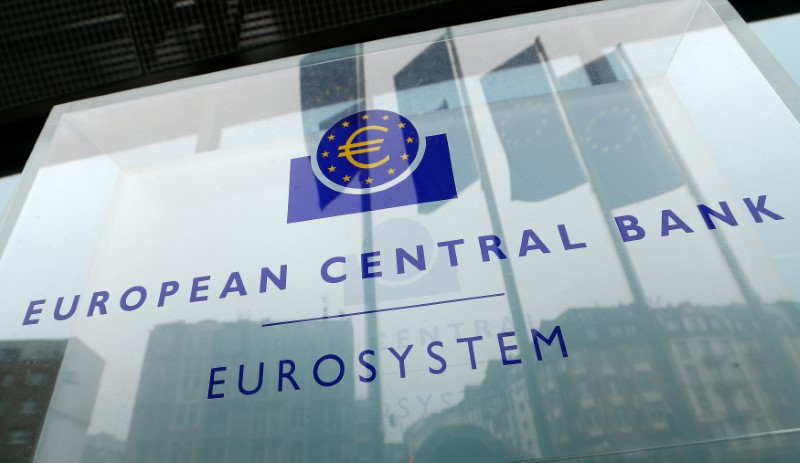Investing.com -- The European Central Bank opened the door to a future interest rate cut and held out the prospect of further measures to ease monetary policy, in a desperate attempt to support a Eurozone economy that is being squeezed increasingly hard by the U.S.'s trade war with China and by a looming "hard" Brexit.
The bank left its key deposit rate at -0.4% and its refinancing rate at 0% at its governing council meeting, as most had expected, but made substantial changes to its forward guidance, stressing the need for more activism to get inflation back up to its targeted level of 2% after years of undershooting.
"The Governing Council expects the key ECB interest rates to remain at their present or lower levels at least through the first half of 2020, and in any case for as long as necessary to ensure the continued sustained convergence of inflation to its aim over the medium term," the ECB said in a statement after a meeting of its policy-making governing council.
The key words "or lower" had not been included in the previous months' statements. Their reintroduction signals that the bank has effectively abandoned its intention to make the next move in interest rates an upward one.
The bank also dropped further heavy hints that it could restart its bond-buying program, saying it had tasked an internal committee to prepare options for "the size and composition of potential new net asset purchases."
An ECB committee will also be asked to prepare measures to ensure that further interest rate cuts don't hurt the profitability of the banking sector. It specifically mentioned "the design of a tiered system of reserve remuneration," an idea current in economist circles for some months.
"It now increasingly looks as if the September meeting will not only bring a single measure but rather a package of several measures," said ING analyst Carsten Brzeski in a research note.
Piet Christiansen, senior Eurozone analyst with Danske Bank, called the statement "very dovish" and told investors to expect the "full package in September."
The bank said the governing council "underlined the need for a highly accommodative stance of monetary policy for a prolonged period of time, as inflation rates, both realised and projected, have been persistently below levels that are in line with its aim."
In that context, it held out of the prospect of adjusting its current inflation target to remove a bias to keep it below 2%.
The euro fell to its lowest level since May 2017 on the back of the news. By 8:15 AM ET (1215 GMT) it was at $1.1111, down from $1.1140 immediately before the announcement.
Government bond yields also fell in the wake of the announcement, with the sharpest declines in the higher-yielding sovereigns. The spread between the Italian and German 10-year benchmarks fell 6.5 basis points to 180 basis points, its lowest since the formation of a populist coalition government in Rome last year.
Eurozone stock markets also rallied, with the sharpest gains likewise in Italy and Spain. The benchmark Euro Stoxx 50 index was up 1.0% on the day, having been up 0.2% before the announcement.
President Mario Draghi, who will chair only two more meetings of the bank's policy-making governing council before stepping down in October, will hold his regular press conference on today's meeting at 8:30 AM ET (1230 GMT).
The easing signal comes a day after PMI data showing that euro zone manufacturing contracted for the sixth straight month in July,
